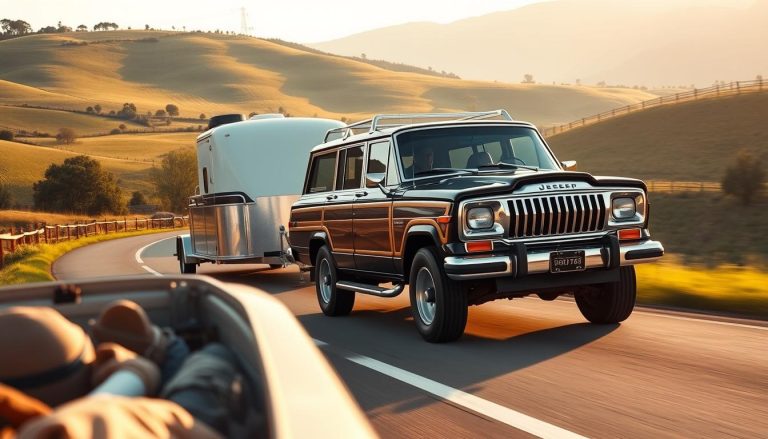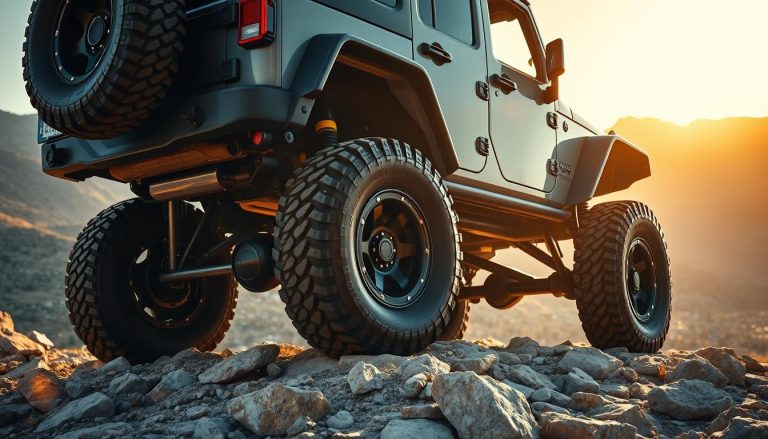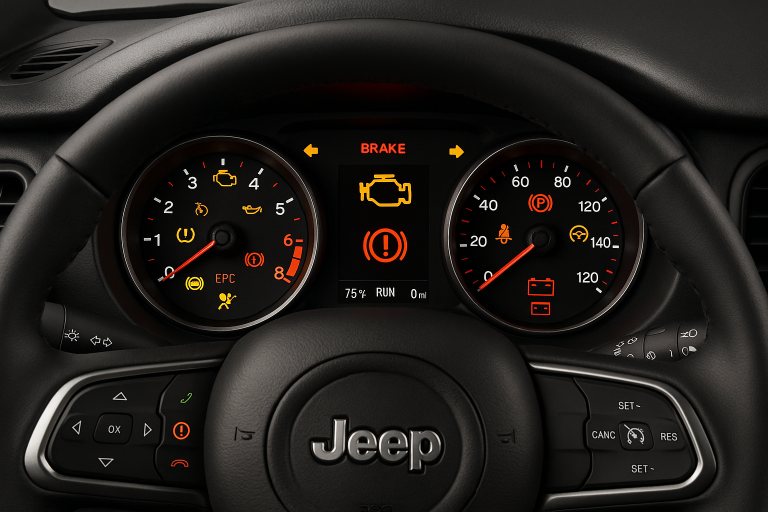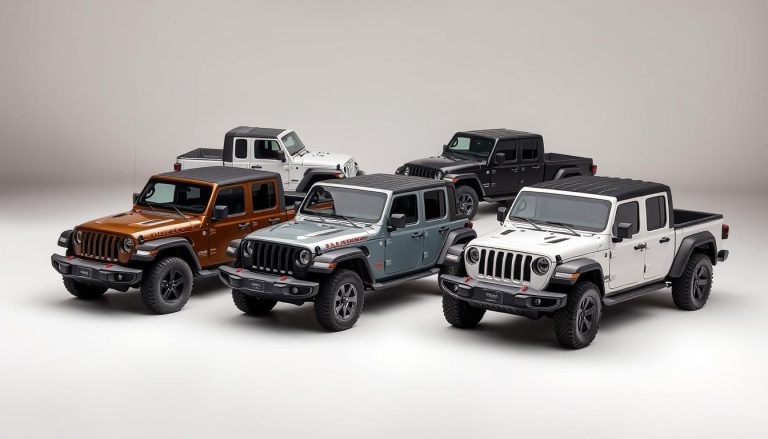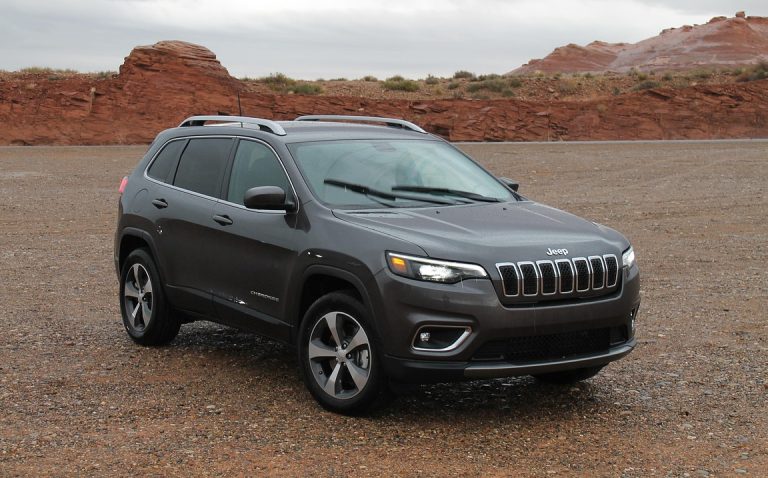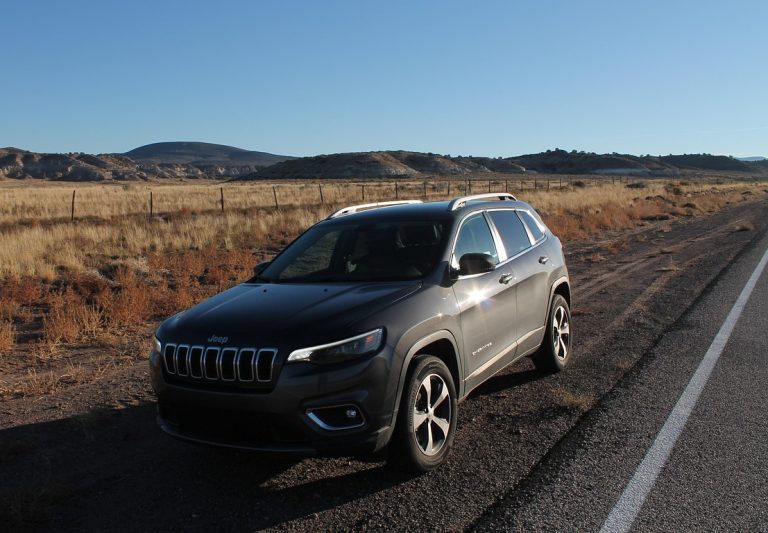Jeep Wrangler Weight Guide – Find Out Now!
The Jeep Wrangler stands out in the off-road world. It’s known for being tough and rugged. We’ll give you the lowdown on how much each model weighs. With this Jeep Wrangler weight guide, you’ll know exactly what to expect, whether for daily drives or wild adventures.
We’re going to look at the Jeep Wrangler specifications and see how different models stack up. You’ll learn how engine types, added accessories, and whether you choose a 2-door or 4-door can affect weight. We’ll also talk about why weight matters for how the Jeep drives, its gas mileage, and how much it can tow. This guide is perfect for anyone who owns a Jeep Wrangler or is thinking of getting one.
Jeep Wrangler Weight
The weight of a Jeep Wrangler significantly impacts how it drives and performs. Knowing both the curb weight and gross vehicle weight is key for buyers and owners. This info helps them make smart choices for their needs.
Jeep Wrangler models vary in weight, affecting how they handle different environments. Their design ensures they are strong and flexible, whether in the city or off-road.
Different models like the Sport, Rubicon, and Sahara have unique weights. This affects their suitability for various activities. The Jeep Wrangler gross vehicle weight rating (GVWR) shows the max weight it can safely carry. This includes passengers and cargo, which is important for functionality and safety.
These weight details is crucial for maximizing your driving experience. It ensures you get the most out of your Wrangler. With this knowledge, owners can make the most of their vehicle for daily use and more adventurous trips.
Curb Weight vs Gross Vehicle Weight
Knowing the curb weight and gross vehicle weight of a Jeep Wrangler helps understand its performance and legal load limits. The curb weight is the Jeep Wrangler’s weight with all standard gear and necessary fluids like oil and fuel. But, it doesn’t count people, stuff, or extra parts.
The gross vehicle weight (GVW) includes everything: the vehicle, folks, stuff, and any extra gear or changes. It’s the heaviest weight that the vehicle can handle safely, making sure it performs well and stays safe. Knowing the differences between these weights is crucial for a Jeep Wrangler weight comparison.
Here’s a simple look at how curb weight and gross vehicle weight matter for a vehicle:
| Weight Type | Includes | Excludes |
|---|---|---|
| Curb Weight | Standard equipment, oil, fuel, coolant | Passengers, cargo, optional accessories |
| Gross Vehicle Weight | Vehicle, passengers, cargo, optional accessories | Overloading beyond the manufacturer’s specification |
Grasping these weights is key for Jeep Wrangler weight comparison and for everyday driving. It helps you stick to the rules and get the best out of your Wrangler.
Weight of Jeep Wrangler by Trim and Model
Choosing the right Jeep Wrangler model means looking at the weight differences. Each trim, like the Jeep Wrangler Sports, Rubicon, and Sahara, has its own mix of speed, toughness, and how well it drives. We’ll dive into the weight of these models to help you pick wisely.
Sports
The Jeep Wrangler Sports model is light and quick. It’s great for those who want a vehicle that’s easy to handle. It cuts out extra parts to give you a simple, yet effective ride. This trim is perfect for city drives and some adventures off-road, offering reliable performance.
Rubicon
The Jeep Wrangler Rubicon is built for tough paths. It has sturdy parts and big tires, focusing on off-road strength. This means it’s heavier, but it’s built to take on difficult terrains. Even with the extra weight, the Rubicon is designed to perform the best off-road.
Sahara
The Jeep Wrangler Sahara trim combines good performance with comfort. It falls in the middle of the Sport and Rubicon in terms of weight. By mixing the Sport’s agility with some features of the Rubicon, it offers luxury and utility. This makes it ideal for various driving needs.
Impact of Engine Choice on Weight
Choosing the right engine for your Jeep Wrangler matters a lot. It affects both how much the Jeep weighs and how it drives. Different engines have their own benefits, like more power, better gas mileage, or less weight. Let’s look at how choosing an engine can change the weight and drive of the Jeep.
3.6L V6
The 3.6L V6 engine is a go-to for many Jeep Wrangler owners. It finds a sweet spot between having enough power and not being too heavy. Choosing this engine barely changes how much the Jeep weighs. This makes it a great choice for people who want reliable engine performance without making the Jeep too heavy.
2.0L Turbo I4
The 2.0L Turbo I4 engine makes the Jeep lighter and saves on gas. It’s perfect for drivers who want to cut down on weight but still have good power. The Jeep becomes nimbler and more gas-efficient with this engine. So, picking the 2.0L Turbo I4 is especially good for those who care about efficiency.
6.4L V8
The 6.4L V8 engine makes the Jeep much heavier because it’s bigger and more powerful. It’s meant for strong performance and suits those who need lots of strength and speed. However, you’ll have a heavier Jeep if you choose the 6.4L V8. It’s best for tasks that need all the power you can get.
4xe Hybrid
The 4xe Hybrid combines a regular engine with an electric motor, which adds weight because of the battery pack. But, it gives you more torque and is better for the planet. Even though this engine makes the Jeep heavier, the extra power and better gas mileage are a fair trade-off for those who want the best engine performance but also care about the environment.
How Much Does a Jeep Wrangler Weigh?
The weight of a Jeep Wrangler matters a lot when picking one out. On average, Jeep Wranglers vary in weight depending on the model, engine type, and added features. Usually, the lightest Wranglers start around 3,970 pounds. The heaviest can weigh over 5,200 pounds.
- For the 2-door models, weights typically range from 3,970 to 4,200 pounds. These are the more compact and lighter options, ideal for those looking for agile performance.
- The 4-door models tend to be heavier, with weights ranging from approximately 4,400 to 5,200 pounds. These are better suited for families or those needing extra cargo space.
- An advanced model like the 4xe Hybrid, while offering better fuel economy and electric driving capabilities, can tip the scales at over 5,200 pounds due to the added weight of the battery pack.
- The powerful V8 models, known for their enhanced horsepower, also contribute to a higher weight configuration, often exceeding 5,000 pounds.
The specifics of a Jeep Wrangler’s weight show how versatile they are. They meet a wide range of needs, from off-roading to everyday driving.
Weight Differences Between 2-Door and 4-Door Models
Choosing between a 2-door and a 4-door Wrangler? It’s important to think about their weight. Each type has its own features that fit different lifestyles and driving tastes.
2-Door Wranglers
2-door Wranglers are lighter and more agile. This makes them great for off-roading, where you need to move easily. They’re perfect for those who love tackling narrow paths and rough landscapes effortlessly.
4-Door Wranglers
On the other hand, 4-door Wranglers are heavier. This gives them more stability and comfort, especially for daily use. They also offer more room for passengers and luggage. That’s why families and long-distance drivers prefer the 4-door model.

| Feature | 2-Door Wrangler | 4-Door Wrangler |
|---|---|---|
| Weight (Approx) | 3,900 lbs | 4,200 lbs |
| Maneuverability | High | Moderate |
| Passenger Capacity | 4 | 5 |
| Cargo Space | Moderate | High |
Knowing the differences between these Jeep models will help you choose the right Wrangler. It’s all about what matches your driving needs and lifestyle best.
Jeep Wrangler Weight Specifications
Knowing how much your Jeep Wrangler weighs is very important. It helps you know the Jeep Wrangler curb weight specifics and the Jeep GVWR (Gross Vehicle Weight Rating). These details are key to figuring out how much load your vehicle can handle. They also make sure you follow the rules.
Curb Weight
The Jeep Wrangler’s curb weight is what the vehicle weighs on its own. This includes all standard gear and a full fuel tank. The weight can change based on the model and trim. Knowing this weight is vital for working out how much you can carry or tow.
GVWR (Gross Vehicle Weight Rating)
The Jeep GVWR tells you the heaviest your Jeep can be, with everything and everyone inside. This limit is very important. It makes sure your Jeep is not too heavy to be safe. Keeping under the Jeep Wrangler specifications for GVWR avoids overloading and keeps you safe on the road.
| Jeep Wrangler Model | Curb Weight (lbs) | GVWR (lbs) |
|---|---|---|
| Sport | 3,970 | 5,500 |
| Rubicon | 4,449 | 5,950 |
| Sahara | 4,263 | 5,800 |
Weight Distribution and Its Importance
Knowing how weight is spread in a Jeep Wrangler is key for safe driving. It helps keep the vehicle stable and performing well. By keeping the weight balanced, your Jeep will handle better and last longer.
Front vs Rear Weight Distribution
The balance of weight between the front and rear of a Jeep Wrangler matters a lot. It should be spread out evenly for the best stability. When it’s not balanced, the Jeep might be hard to steer. This balance is especially important for those who love taking their Jeeps off-road.

Effects on Handling and Performance
For a Jeep Wrangler owner, how the weight is spread out affects how well it drives. A well-balanced weight means better control and less strain on parts. It makes sure all tires touch the ground equally, giving better grip and control. This is really important when driving on tough roads or steep hills.
Effects of Additional Accessories on Weight
Adding accessories to a Jeep Wrangler changes its weight and performance. We look at how hardtops, soft tops, bigger tires, winches, and bumpers make a difference.
Hardtop vs Soft Top
Choosing between a hardtop and a soft top affects your Jeep’s weight. Hardtops provide better insulation and security but they’re heavier than soft tops. This
Larger Tires
Getting bigger tires for off-road fun is common. But remember, larger tires add significant weight. This extra load lowers fuel economy, increases engine strain, and may cause wear and tear.
Winches and Bumpers
Winches and aftermarket bumpers improve recovery and safety, adding to the Jeep’s weight. A winch can add 60-100 pounds to the front, changing how it handles. Steel bumpers, heavier than the original plastic ones, also impact weight.
| Accessory | Weight Increase |
|---|---|
| Hardtop | +80 lbs |
| Soft Top | +20 lbs |
| Larger Tires | +50 lbs |
| Winch | +60-100 lbs |
| Steel Bumper | +50-75 lbs |
Knowing the impact of these weights helps Jeep lovers make smart choices. It’s all about weighing the pros and cons for optimal performance.
Impact of Jeep Wrangler Weight on Fuel Efficiency
The Jeep Wrangler’s weight greatly affects its fuel efficiency. Heavier Wranglers need more energy to move, which lowers their miles per gallon (MPG). Essentially, the more a Jeep weighs, the more fuel it uses.
Adding things like winches and bigger tires for off-road driving can reduce a Jeep’s MPG. These extras make the Jeep heavier and drop its fuel economy.
- Lighter Jeep Wranglers are usually more fuel-efficient than heavier ones.
- 2-door models weigh less than 4-door ones, giving them better MPG, especially in cities.
- Opting for a soft top over a hardtop can also improve your Jeep’s fuel efficiency.
Knowing how weight affects MPG helps Jeep owners choose wisely to save on fuel. By considering the Jeep’s economy, you can get the best of both worlds: performance and efficiency.
Jeep Wrangler Weight Capacity
The Jeep Wrangler’s weight capacity matters a lot for daily drives and big adventures. It’s key for the best performance and staying safe.
Payload Capacity
The payload for a Jeep Wrangler changes with the model and setup. You can expect it to hold between 1,000 to 1,200 pounds. This means you can bring all your important stuff without losing power.
Towing Capacity
The Jeep Wrangler towing limits depend on the engine and design. For example, the 3.6L V6 models can tow up to 3,500 pounds. So, you can easily pull medium trailers, boats, or equipment.
| Model | Engine | Payload Capacity (lbs) | Towing Capacity (lbs) |
|---|---|---|---|
| Wrangler Sport | 3.6L V6 | 1,000 | 3,500 |
| Wrangler Rubicon | 2.0L Turbo I4 | 1,200 | 3,500 |
| Wrangler Sahara | 4xe Hybrid | 1,100 | 3,500 |
These capabilities show why the Jeep Wrangler is a solid choice for those who need good payload and towing ability. Whether on tough trails or city streets, knowing the Jeep Wrangler payload and Jeep Wrangler towing limits is essential.
Comparative Analysis: Jeep Wrangler vs Competitors
When we look at the Jeep Wrangler alongside its top rivals, the Ford Bronco and the Toyota 4Runner, their weights play a big role in how they perform and what they can do. Knowing these differences helps you choose what’s right for you.

Ford Bronco
The Ford Bronco’s weight changes depending on its model and setup, just like the Jeep Wrangler. Its design and quality highlight its strong off-road skills. These skills are pretty similar to what the Wrangler offers.
- The Bronco’s body-on-frame construction helps manage the SUV weight comparison with durability in mind.
- Comparing Jeep vs Ford Bronco, the Bronco offers multiple engine options, leading to variability in weight and performance.
Toyota 4Runner
The Toyota 4Runner stands out next to the Jeep Wrangler for its sturdy build and longevity. These features are seen in its weight and design.
- The 4Runner’s higher curb weight provides a stable on-road presence, often sought after by family-oriented buyers.
- In a Jeep vs Toyota 4Runner comparison, it’s essential to note how Toyota’s design choices affect the overall weight, contributing to its renowned reliability and off-road dependability.
| Model | Curb Weight | GVWR | Key Features |
|---|---|---|---|
| Jeep Wrangler | 3,948 – 4,449 lbs | 5,300 – 5,800 lbs | High off-road performance |
| Ford Bronco | 4,319 – 4,786 lbs | 6,120 – 6,160 lbs | Versatile, off-road oriented |
| Toyota 4Runner | 4,400 – 4,805 lbs | 6,300 – 6,400 lbs | Durability and reliable performance |
This analysis gives us a better view of how the Jeep Wrangler stands up against its competitors in terms of weight and its advantages. This info helps buyers make a smarter choice in their SUV weight comparison search.
Choosing the Right Jeep Wrangler for Your Needs
Finding the perfect Jeep Wrangler for you is an exciting process. It’s important to think about the car’s weight, its purpose, and what you like. Whether you want a *best Jeep for daily use* or the *optimal Jeep for off-roading*, picking the right one makes every trip better.
Best for Daily Driving
If you’re after the best Jeep for everyday driving, consider the Wrangler Sport and Sahara models. They’re lighter, which means they use less fuel and offer a smoother ride. This is perfect for city and suburban travel. The Sahara model adds a touch of luxury for comfortable driving, without losing the Jeep’s tough look.
Best for Off-Roading
For off-road enthusiasts, the Jeep Wrangler Rubicon is the top pick. Its heavier and strong build is made for rough terrain. It features locking differentials, higher ground clearance, and rock sliders. These make the Rubicon the best for off-road adventure, setting it apart in performance.
Best Hybrid Option
If you care about performance and being eco-friendly, the Jeep Wrangler 4xe Hybrid is great. This model combines the classic Jeep power with a green approach. The 4xe offers strong performance, better fuel efficiency, and lower emissions. It’s a smart choice for those who want a Jeep Wrangler that’s environmentally thoughtful.
| Need | Recommended Model | Key Features |
|---|---|---|
| Daily Driving | Sport, Sahara | Lighter weight, fuel efficiency, luxury features |
| Off-Roading | Rubicon | Robust construction, off-road enhancements |
| Hybrid Option | 4xe Hybrid | Eco-friendly, improved torque, reduced emissions |
Conclusion
We’ve looked deep into the Jeep Wrangler’s weight and why it matters so much. For anyone thinking of buying one or already owning one, recognizing its weight is key. We’ve talked about everything from the basic curb weight to how different engines can change the Wrangler’s weight and performance.
Weight is super important because it affects how the Jeep drives, its fuel use, and how much it can carry or tow. We’ve shown you how choosing different models, trims, or adding things like a hardtop or bigger tires can change your Jeep’s feel and performance. This info helps you choose the right Jeep, whether you want a 2-door, a 4-door, or are curious about the hybrid option.
In the end, knowing about your Jeep Wrangler’s weight helps you make the best choice for you. It’s all about finding the right balance for your adventures or your daily drive. This guide gives you the know-how to pick the Wrangler that fits your needs and dreams best.
FAQs
How much does a basic Jeep Wrangler weigh?
A basic 2-door Sport Jeep Wrangler starts around 3,970 pounds. The weight might change with extra accessories or different setups.
What is the difference between curb weight and gross vehicle weight (GVW)?
Curb weight is the Jeep Wrangler’s weight with standard gear but without passengers or cargo. Gross vehicle weight includes the Jeep, people, cargo, and added accessories.
How does engine choice affect the weight of a Jeep Wrangler?
Choosing an engine affects the weight and performance of a Jeep Wrangler. The 3.6L V6 engine offers power without adding too much weight. But the 6.4L V8 is heavier because it’s bigger. The 4xe Hybrid is heavier still due to its battery pack.
How does the weight of the 2-door Wrangler compare to the 4-door model?
The 2-door Wrangler is lighter and more agile, great for off-roading. The 4-door version is heavier but offers more stability, space, and comfort. It’s better for families and everyday use.
What is the weight distribution in a Jeep Wrangler, and why is it important?
Weight distribution in a Jeep Wrangler should be balanced between the front and back. This balance is key for stable handling and performance. It improves control and reduces vehicle wear, especially when off-roading or carrying heavy loads.
How do additional accessories like hardtops and larger tires affect the weight of a Jeep Wrangler?
Extra gear like hardtops, big tires, winches, and bumpers add weight. These additions boost capability and safety but can lower fuel economy, handling, and increase suspension load.
How does the weight of a Jeep Wrangler impact its fuel efficiency?
A heavier Jeep Wrangler usually has worse fuel efficiency since it takes more energy to move more weight. Knowing this helps owners choose configurations and drive in ways that save fuel.

